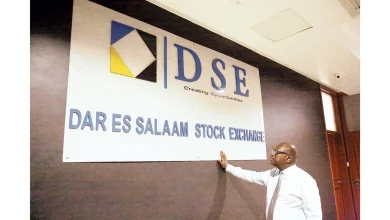Govt eyes regional shipping, trade gains

DAR ES SALAAM: TANZANIA is positioning itself to tap into shipping and trade opportunities across southern Africa, seeking to become a key hub for regional commerce and logistics.
It aims to capitalise on growing cross-border trade and fully leverage regional markets, including the African Continental Free Trade Area (AfCFTA), the Southern Africa Development Community (SADC) and the East African Community (EAC).
Deputy Permanent Secretary of the Ministry of Industry and Trade, Dr Suleiman Serera emphasised the government’s commitment to fostering a favourable environment for investors and stakeholders in the transport sector. He made this statement during the Tanzania Shippers Council’s Annual General Meeting on Tuesday.
“The government will continue collaborating with shippers to tackle obstacles in cargo transportation and enhance efficiency in container trade. While the government develops policies, regulations and laws, it is the private sector that implements them,” Dr Serera said.
The government also commended the TSC for its appointment to the Interim Secretariat of the Federation of Eastern, Southern and Northern Africa Shippers Council (FESNASCO), calling it a milestone.
“Hosting the secretariat is a source of national pride and gives the country a unique opportunity to play a central role in shaping key decisions on transport and trade in the region. We should make the most of it for the benefit of our nation and the entire East African region,” he said.
The Deputy PS said that developing electric-drive railways and other transport infrastructure is crucial for efficiently moving cargo to and from sea and lake ports, strengthening the entire value chain and fast-tracking the government’s ambition.
The TSC Chairman, Mr Clement Kamindu, praised the government for its proactive engagement with stakeholders to resolve challenges in the transport and logistics sector.
ALSO READ: AFDB approves Exim Bank’s $10m for SMEs
“These improvements reflect the government’s commitment to modernising port infrastructure and aligning operations with international standards,” Mr Kamindu said.
Meanwhile, TSC Secretary General Josephine Edington said that more than 100 stakeholders have been trained this year through capacity building initiatives aimed at complementing technological advancements across the entire logistics chain.
“These workshops, sponsored by GIZ and SADC have been instrumental in enhancing understanding of the AfCFTA and preparing our members to seize regional trade opportunities,” she said.
The council’s successful coordination of AfCFTA awareness workshops in Dar es Salaam and Zanzibar, targeting spice exporters, clearing and forwarding agents and logistics professionals.
The capacity building initiatives have generated strong interest among stakeholders and the council will continue collaborating with various partners to further enhance skills and capabilities across the sector.





